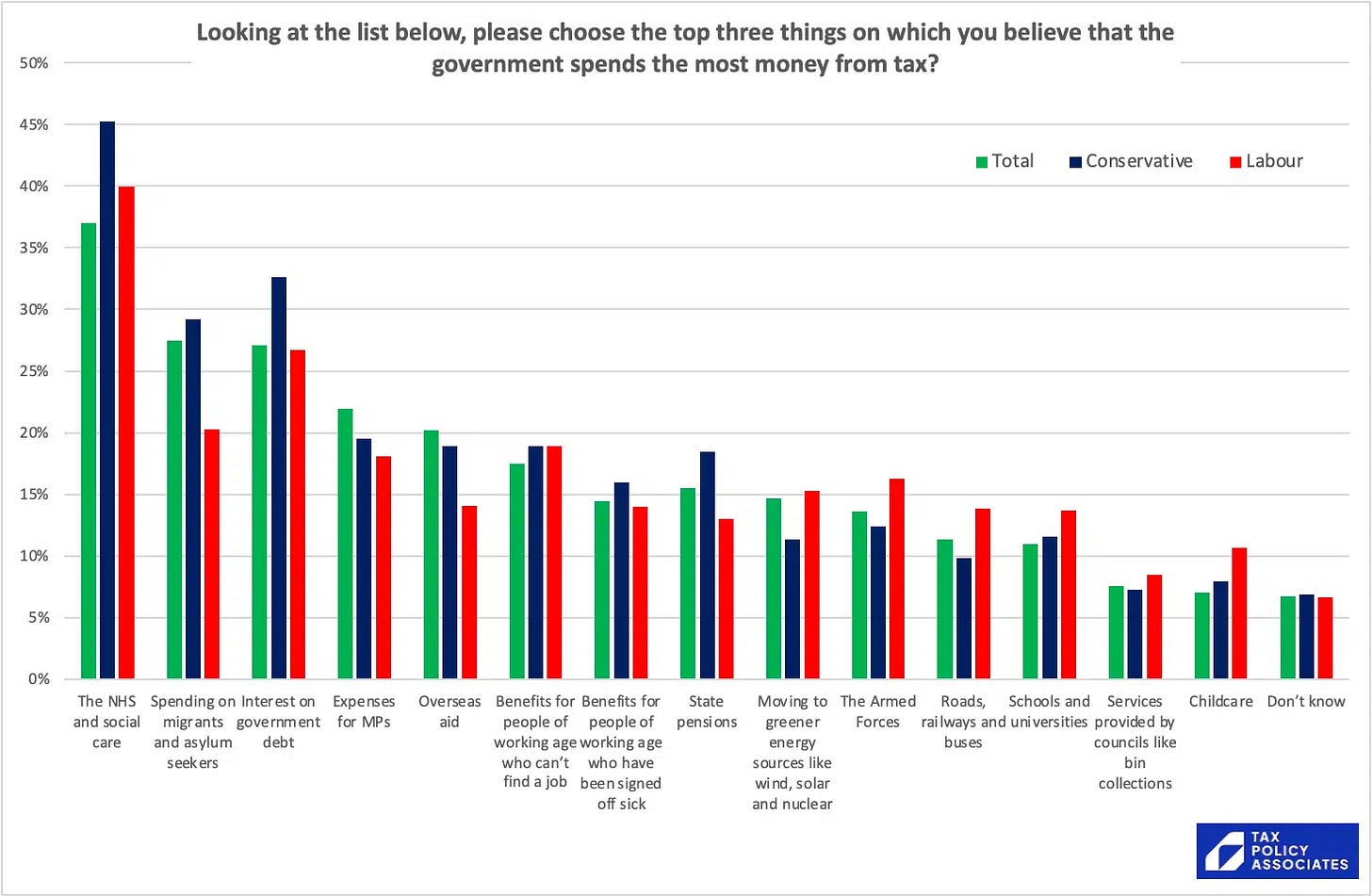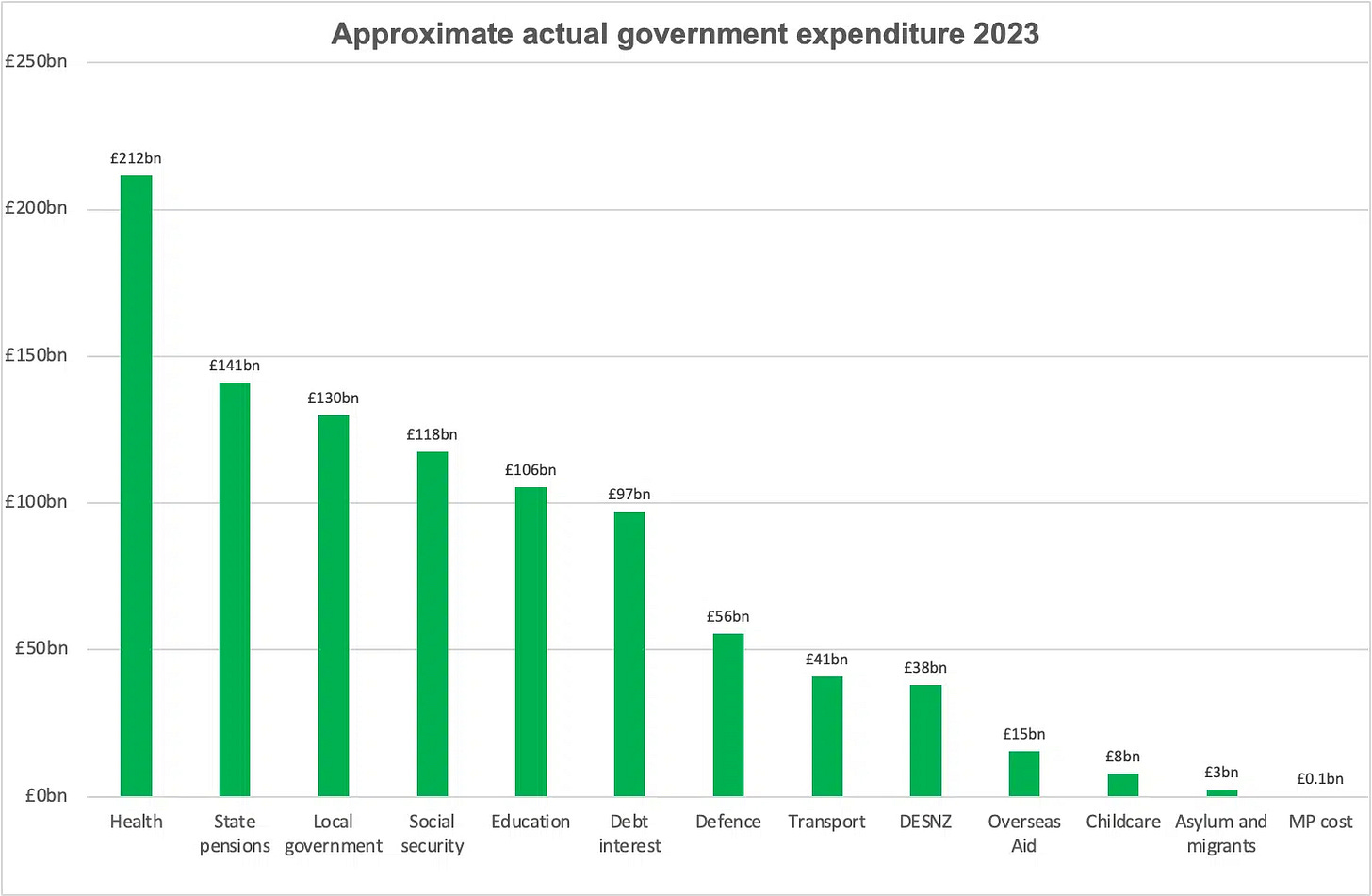These two charts expose Nigel Farage’s immigration myths
The migration debate is based on blatant, provable falsehoods.
A note on who I am: I’m an investigative journalist and current affairs writer who specialises in exposing dark money and radical right-wing ecosystems.
Carole Cadwalladr: “I’ve been really impressed by Sam’s work – persistently finding story after story exposing wrongdoing and hypocrisy at the highest level. A name to watch!”
Nigel Farage claims he has all the momentum in British politics, and for once he may actually be telling the truth.
On the back of his success at the local elections, we can expect a four-year onslaught of feverish speculation about whether he may be the UK’s next prime minister.
We can also expect his favourite talking points to be beamed into our homes and onto our phones – principally that voters are worried sick about immigration, which has reached unsustainable levels and needs to be cut to “net zero”.
This is being buttressed by the Labour government, which is stealing Farage’s clothes and reinforcing the widespread opinion that immigration is the biggest problem in modern Britain.
Journalists and politicians justify this endless persecution of migrants on the basis of public opinion. Anti-immigration politicians keep winning elections, they say, while migration is constantly ranked as a top issue among voters.
However, few of those who shape public debate care to question whether voters have an accurate understanding of immigration and its consequences.
In reality, it turns out, the public is wildly misinformed on the subject.
The below chart, based on polling by Portland Communications, shows that voters believe the government spends a lot of money on immigration and asylum.
“Spending on migrants and asylum seekers” is thought to be one of the top forms of government expenditure – ranked in between the NHS and national debt payments.
The belief
Yet, as this second chart demonstrates, the public’s belief couldn’t be more misplaced. In 2023, the UK spent £212 billion on health, £141 billion on pensions – and a relatively paltry £3 billion on asylum and immigration.
The reality
Now, don’t get me wrong, there is a valid debate to be had about immigration – as with any public policy.
But this debate has to take place on the basis of facts, or we risk dedicating huge amounts of energy and resources to fixing a non-existent (or barely-existent) problem.
Of course immigration has impacts beyond government spending, but I would wager that a lot of the acrimony directed at migrants stems from the unfounded perception that they are sponging off the hard work of so-called “native” Brits.
As the above charts clearly show, this perception is patently wrong.
Immigrants are a convenient scapegoat for the tax dodgers, corporate raiders, and oligarchs who have asset stripped Britain. This offshore elite has drained the public purse and created a festering sense of impotence, stagnation, and dislocation among Brits.
People know someone else is getting the better of them. They have seen huge improvements in technology over the past 20 years, the mass education of the British workforce, and the growth of “GDP” – yet they feel poorer and more insecure than ever.
Farage’s role – along with much of the right-wing press – has been to direct this anger towards the wrong targets: towards immigrants, benefits claimants, and the European Union. And anyone motivated by the truth should be calling him out.
About me
I’m an investigative journalist and current affairs writer who has worked with the New York Times, the Guardian, the Mirror, the New European, Novara Media, New Statesman, Led By Donkeys, and others.
I specialise in exposing dark money and radical right-wing ecosystems, and I’m probably best known for my stories revealing the billions in PPE contracts awarded to Tory friends and donors during the pandemic. I was the first journalist to expose the £100 million+ contracts awarded to Michelle Mone’s firm, PPE Medpro.
I’m the author of two books: Fortress London, and Bullingdon Club Britain.
Why subscribe
Trump, Musk and Farage are on the march – followed closely by Badenoch and an increasingly radicalised Conservative Party. Investigative journalism exposing their funding sources, their plans, and their networks has never been more important.
Farage will fall into the same trap as Boris Johnson
There are plenty of similarities between Nigel Farage, self-appointed “leader of the opposition”, and our venerable former prime minister Boris Johnson.
Meet Farage’s rich cronies
Reform leader Nigel Farage is banking on a surge of cash propelling him to the charcoal door of Downing Street.
Endorsements of my work
Peter Oborne: “One of our finest investigative journalists”.
John Sweeney: “One of the best reporters of his generation”.
Carole Cadwalladr: “I’ve been really impressed by Sam’s work – persistently finding story after story exposing wrongdoing and hypocrisy at the highest level. A name to watch!”
Matthew Wright: “A new and vital force in journalism, Bright’s well-crafted investigations and political scoops have already won him plaudits. His reports have forced government ministers on to the defensive and left the mainstream media trailing in his wake, playing desperate catch up.”
James O’Brien: “I have drawn heavily on his tireless work and heartily recommend his book, Bullingdon Club Britain.”







To be honest. I wish someone would share it with the Labour government so they would stop pandering to Farage and his cronies. Consequently the Labour government should then be making a lot more of this eye opening journalism, by sharing it a lot more with the public. Excellent work, thank you.
So very true, the biggest issue in this country is the likes of Farage and his ilk are believed. The lemmings that follow him will not have their paths altered in the same way as the MAGA people believe everything that comes out of Trumps mouth. With the use (or misuse) of social media prevalent in all our lives it needs an uprising of huge proportions to change the path we are on. I just hope you and others can persuade before it is too late.